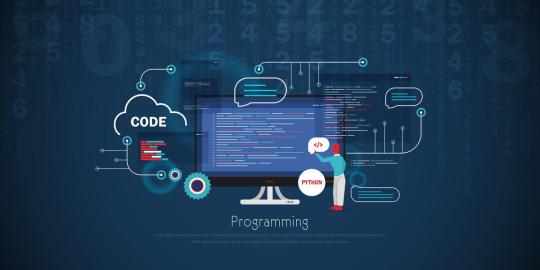#c: Haskell
Note
Happy STS! If your characters went out to karaoke, which song would they belt out at the top of their lungs?
Finally getting to this one! My mind remains full of Elbas Island so if we pretended that they know Earth music:
Milo: the idea of him doing Barbie Girl with Binna, where he is Barbie and Binna is Ken is just too funny to not be the answer.
Nidilaenn: Major Tom (Coming Home).
Ellery: Poor Unfortunate Souls. He wants to be dramatic about it and he wants you to understand how dramatic he's being about it.
Patience: Hollaback Girl. You know Mel is singing backup.
Mel: Last Dance by Donna Summer.
Tirias: she literally cannot sing so she would either put on a song everyone knows (All Star) and let them sing it while she hams it up or announce that this is a rendition of John Cage's 4'33". These two things get different responses from the audience but they are functionally the same thing.
Ysa: Friends in Low Places by Garth Brooks.
Rae: Any Way You Want It by Journey.
Madge: Sucker by Jonas Brothers.
Rigo: Break My Heart by Dua Lipa.
Haskell: no, I don't do karaoke, no...well, I guess... Girls Just Wanna Have Fun.
Lacey: the most heartfelt rendition of Mary Had A Little Lamb you've ever heard.
#Amadjes refuses out of hand. He doesn't really speak and definitely doesn't sing#no one can let Herric come to karaoke or they won't get off the mic. Urielte will only egg them on#I cannot explain how Rigo Dua Lipa is#Lacey might also attempt a 'grown up' song that per kind of knows and just mumble all the words per doesn't#per's not so good with reading on a karaoke machine at this point#c: Milo#c: Binna#c: Nidilaenn#c: Ellery#c: Patience#c: Mel#c: Tirias#c: Ysa#c: Rae#c: Madge#c: Rigo#c: Haskell#c: Lacey#wip: tfa#elbas island#sts
4 notes
·
View notes
Text
love being the only woman in a class of almost 40 students and having the professor either ignore me or make fun of me
#all i said was i liked python bc he was asking ppl's favorite programming language#and he said 'of course. it's the easiest' and sneered lol#i can program in C java haskell... i just like python like everyone else lol
32 notes
·
View notes
Text
Normally I just post about movies but I'm a software engineer by trade so I've got opinions on programming too.
Apparently it's a month of code or something because my dash is filled with people trying to learn Python. And that's great, because Python is a good language with a lot of support and job opportunities. I've just got some scattered thoughts that I thought I'd write down.
Python abstracts a number of useful concepts. It makes it easier to use, but it also means that if you don't understand the concepts then things might go wrong in ways you didn't expect. Memory management and pointer logic is so damn annoying, but you need to understand them. I learned these concepts by learning C++, hopefully there's an easier way these days.
Data structures and algorithms are the bread and butter of any real work (and they're pretty much all that come up in interviews) and they're language agnostic. If you don't know how to traverse a linked list, how to use recursion, what a hash map is for, etc. then you don't really know how to program. You'll pretty much never need to implement any of them from scratch, but you should know when to use them; think of them like building blocks in a Lego set.
Learning a new language is a hell of a lot easier after your first one. Going from Python to Java is mostly just syntax differences. Even "harder" languages like C++ mostly just mean more boilerplate while doing the same things. Learning a new spoken language in is hard, but learning a new programming language is generally closer to learning some new slang or a new accent. Lists in Python are called Vectors in C++, just like how french fries are called chips in London. If you know all the underlying concepts that are common to most programming languages then it's not a huge jump to a new one, at least if you're only doing all the most common stuff. (You will get tripped up by some of the minor differences though. Popping an item off of a stack in Python returns the element, but in Java it returns nothing. You have to read it with Top first. Definitely had a program fail due to that issue).
The above is not true for new paradigms. Python, C++ and Java are all iterative languages. You move to something functional like Haskell and you need a completely different way of thinking. Javascript (not in any way related to Java) has callbacks and I still don't quite have a good handle on them. Hardware languages like VHDL are all synchronous; every line of code in a program runs at the same time! That's a new way of thinking.
Python is stereotyped as a scripting language good only for glue programming or prototypes. It's excellent at those, but I've worked at a number of (successful) startups that all were Python on the backend. Python is robust enough and fast enough to be used for basically anything at this point, except maybe for embedded programming. If you do need the fastest speed possible then you can still drop in some raw C++ for the places you need it (one place I worked at had one very important piece of code in C++ because even milliseconds mattered there, but everything else was Python). The speed differences between Python and C++ are so much smaller these days that you only need them at the scale of the really big companies. It makes sense for Google to use C++ (and they use their own version of it to boot), but any company with less than 100 engineers is probably better off with Python in almost all cases. Honestly thought the best programming language is the one you like, and the one that you're good at.
Design patterns mostly don't matter. They really were only created to make up for language failures of C++; in the original design patterns book 17 of the 23 patterns were just core features of other contemporary languages like LISP. C++ was just really popular while also being kinda bad, so they were necessary. I don't think I've ever once thought about consciously using a design pattern since even before I graduated. Object oriented design is mostly in the same place. You'll use classes because it's a useful way to structure things but multiple inheritance and polymorphism and all the other terms you've learned really don't come into play too often and when they do you use the simplest possible form of them. Code should be simple and easy to understand so make it as simple as possible. As far as inheritance the most I'm willing to do is to have a class with abstract functions (i.e. classes where some functions are empty but are expected to be filled out by the child class) but even then there are usually good alternatives to this.
Related to the above: simple is best. Simple is elegant. If you solve a problem with 4000 lines of code using a bunch of esoteric data structures and language quirks, but someone else did it in 10 then I'll pick the 10. On the other hand a one liner function that requires a lot of unpacking, like a Python function with a bunch of nested lambdas, might be easier to read if you split it up a bit more. Time to read and understand the code is the most important metric, more important than runtime or memory use. You can optimize for the other two later if you have to, but simple has to prevail for the first pass otherwise it's going to be hard for other people to understand. In fact, it'll be hard for you to understand too when you come back to it 3 months later without any context.
Note that I've cut a few things for simplicity. For example: VHDL doesn't quite require every line to run at the same time, but it's still a major paradigm of the language that isn't present in most other languages.
Ok that was a lot to read. I guess I have more to say about programming than I thought. But the core ideas are: Python is pretty good, other languages don't need to be scary, learn your data structures and algorithms and above all keep your code simple and clean.
#programming#python#software engineering#java#java programming#c++#javascript#haskell#VHDL#hardware programming#embedded programming#month of code#design patterns#common lisp#google#data structures#algorithms#hash table#recursion#array#lists#vectors#vector#list#arrays#object oriented programming#functional programming#iterative programming#callbacks
6 notes
·
View notes
Text
Honestly hate C, terrible programming language
#tbf haskell has spoiled me with what features I expect from a language#I wish nim was better honestly#It's a really nice language to use#Much better than C#But it has too many weird implementations of things that I don't really get#Like 'type classes' and concepts that still don't allow you to define proper HKTs or ADTs#Maybe I could get something working with macros but that feels annoying#I think the problem I was having actually is the same one that GATs have helped fix in rust
8 notes
·
View notes
Text
Programming Languages
Here’s a list of languages you could learn. These link to their websites or websites that describe them best and can help you out when looking around for documentation or tutorials.
Learn these first, they’ll make learning the rest a little easier. These are mostly for front end web development but they are foundational.
HTML
CSS
Javascript
Jump into any of these next
Python
C, C#, C++
Swift
Kotlin
PHP
Haskell
Java
Ruby
Perl
TypeScript
Rust
Scala
Great reads
What is Web Development?
Web vs Software Development
What is Object Oriented Programming (OOP)?
#free#learn#resource#list#html#css#javascript#python#c#c++#swift#kotlin#php#haskell#java#ruby#perl#typescript#rust#scala
1 note
·
View note
Text

Retrospection, c. 1913
By Ernest Haskell
#art#painting#fine art#classical art#american art#american artist#graphic art#portrait#american painter#female portrait#20th century art#20th century#drawing#print#beauty
3K notes
·
View notes
Text
Programming languages running the crypto-economy
Programming languages running the crypto-economy
Smart contracts, which allow you to perform automated actions on blockchains, are the backbone of the crypto industry. Programming languages are a must for their effective creation
The cryptoecosystem stands on top of distributed ledgers, generally called blockchains. In addition to recording and verifying transactions, some crypto blockchains like Ethereum allow users to trigger self-executing…

View On WordPress
#Bitcoin#C++#coding in crypto#crypto blockchains like Ethereum#crypto- economy #haskell#programming languages#python#rust#smart contracts#Twitter co-founder Jack Dorsey.
0 notes
Text
250 Guías y proyectos en profundidad para hackers curiosos por CodeCrafters
250 Guías y proyectos en profundidad para hackers curiosos por CodeCrafters
Este repositorio es una compilación de guías paso a paso bien escritas para recrear proyectos basados en nuevas tecnologías desde cero: Una gran manera de aprender.
Construye tu propio renderizado 3D
C++: Introducción al trazado de rayos: un método simple para crear imágenes en 3D
C++: cómo funciona OpenGL: procesamiento de software en 500 líneas de código
C++: motor de emisión de rayos de…
View On WordPress
#C#Clojure#Go#Haskell#Java#Javascript#Kotlin#Lisp#Lua#Nim#Node#O´Caml#Pascal#Perl#Python#R#Racket#Rust#Scala#Shell#Swift#Typescript
0 notes
Text
under socialism, we will place all computer systems and education under the strict direction of a planning committee composed entirely of stringent programming language theorists, who will reorient the relationship between concrete and abstract so that physical computers are merely mechanisms to incarnate transcendent mathematical principles. a great flowering of new programming languages will take place; Haskell and Coq will be considered aeolipiles to the true programming languages yet to come; C will be retained as a historical curiosity with an esolang subculture that uses it for fun; C++ will be subject to damnatio memoriae. this state of affairs will last six years before the entire committee is executed in a Thermidorean coup led by the Scriptists, who will institute JavaScript as the only legal programming language, banning all others and purging their erstwhile allies the Delphists.
471 notes
·
View notes
Text
Kaz Isn't Actually Motivated By Greed
Or at least, not primarily. Don't get me wrong, his stated primary driving factor is getting the money he was promised from Van Eck, but his reasoning isn't actually greed-based. Kaz's desire for money is goal-oriented and his fixation on it during the duology is fairness-based. He initially wants his share of the money because it will allow him to split from Per Haskell and start his revenge scheme over Pekka. He then pursues getting it with such zeal because Van Eck broke their deal and Kaz (rightly) feels cheated; Van Eck contracted him for a job, which he successfully completed, and then refused to pay him for it.
He fixates on destroying Van Eck because like Pekka Rollins, he broke his deal with Kaz and scammed him out of his money. It's the scamming and deal-breaking (and his inability to figure it out beforehand) that hit Kaz's pride and motivate him. If it were really just about the money, he could have gotten it any number of ways. But despite talking a big game about worshipping money and it being his primary motivating factor, he throws away an awful lot of opportunities to get and keep it during the duology:
He doesn't take the Ice Court job until he's shown the effects of parem and promised 30 million kruge (enough that when split he could realize his dreams of splitting from Haskell and taking out Rollins)
He gives up his shares in the Crow Club and Fifth Harbor to Pekka in order to rescue Inej and kickstart the Sugar Silo scheme
He doesn't abandon Inej after she's taken by Van Eck and sell Kuwei to the highest bidder, even though that would have been the most logical and lucrative option (as both Inej and Matthias think about)
He liquidates all of his existing financial assets to free Inej AND tells her where his emergency stash is so she and the rest of the Crows can get out of the city safely
He gives Rotty and Specht Per Haskell's share of the Ice Court Heist money (recognizing their loyalty and help) and Nina Matthias's share (to somewhat compensate her for her grief and honor Matthias's contributions) instead of keeping it for himself
He buys Inej a ship with part of HIS share of the money
And while several of the things he abandons money for are for Inej, to keep her safe and free and happy, the rest of the Crows and the Dregs at large benefit too. So do people he's probably never met. Pre-canon!Kaz fixed up the Slat with his own money so it's a safe-ish place for the Dregs to live, for example, and in Crooked Kingdom he totally goes along with Nina's plan to get all of Ketterdam's Grisha onto the boat to Ravka after a mostly token protest even though it massively complicates his plans.
It's pretty clear that no matter what he says, at the end of the day Kaz values loyalty, fairness, and keeping his promises more than he values money. The money is just a means to an end for him: he wants it because it will a) allow him to have an amount of safety and security for himself and the people he cares about (and those who have pledged their loyalty to him), b) let him keep his deals with and promises to said people, and c) give him the ability to one-up Pekka and destroy his empire.
#six of crows#soc#soc meta#kaz brekker#inej ghafa#kanej#brotp: the crows#nina zenik#matthias helvar#kaz's morality meta: part 1
878 notes
·
View notes
Text
Is there a functional programming language that C like in its syntax? I like functional programming but the syntax of Haskell makes me uncomfortable.
256 notes
·
View notes
Text

‘Haskell’s House’ by Edward Hopper, c. 1924.
227 notes
·
View notes
Text
not sure what this game is called
@eccaiia tagged me to share a line with temperature, a line with fear, a funny line, a line with color, and a line i’m proud of … all from neon bloodlust
a line with temperature :
It’s hot, bordering on suffocating, in the club. Ropes of glaring red light wrap around the edges of the ceiling and hang loose like disembodied intestines. Bodies swell like fish in a current, swaying and weaving to the thrum of music blaring loud overhead. Impossible to tell who is who, what is what, when most everything is bathed in red and shadow.
a line with fear :
“I don’t suppose you have spoken to your partner recently?”
“Not since he left to investigate the premises of Club Bloodlust.” Three hours ago, without a single word, no indication of his safety or location or when he might return.
“I see.” She moves something on her desk. Nails tap against wood. “Were you aware that he is fraternizing intimately with, I presume, strangers … in public, no less? On company time.”
“Frater—“ Detroit pauses long enough to assess the word, and the spoon falls from his hand. Clatters to the floor. “No. He isn’t.” Is he? “He wouldn’t.” Would he?
“I have the recordings of our last conversation, if you would like to see for yourself.”
Detroit shakes his head. Grasps onto the counter. “No …” But he reconsiders it, because surely Haskel is making something out of nothing. “On second thought … yes.”
a line with a color :
The first of the other sites is vacant, now, crisscrossed with yellow tape meant to keep the curious at bay, but there’s little anyone can do to really stop them. Vex doesn’t think it’s such a big deal, anyway—less of a crime scene now than it was before, just an empty plot of land outside an equally empty structure that could have easily been a barn or a church.
Few of the latter are left standing these days, and what are have been warped into nightclubs or empty gravesites of a time forgotten.
a line you are proud of [i’m not presently feeling much positivity towards my writing so just grabbing the most recent lines from neon bloodlust] :
The door to apartment C-03 slides open with a groan that scrapes along Vex’s brain like a splintered fingernail. His teeth gnash together in protest, eyes squinting at the glare of overhead light as he ducks into the unit.
“Detroit?” His voice comes out raspy, carrying the weight of fatigue lodged in his limbs and swelling across his brain. “You here?”
No answer beyond the familiar whir and buzz of electronics. He presses a thumb to the button beside the door. Winces at its creaking descent and delves deeper into the apartment.
tagging @winterandwords , @indecentpause , @cwritesfiction , and @wintherlywords
i have no idea on the rules here exactly but here’s what you get : a line about an animal, a sad line, a line with an exclamation, and a line about family or a friend
11 notes
·
View notes
Text
In always surprised when I remember that most languages don't support UFCS, allowing methods and functions to use the same syntax, i.e. f(a,b,c) == a.f(b,c) whether f is a method or a free function.
To me it just seems so intuitive – that's essentially how I've always interpreted methods anyway – but it seems to only be implemented in Nim and D, both of which are relatively obscure languages.
Maybe it's just the functional programming bias influencing me again. The reversed form of this is quite common in languages with currying / easy partial application like Haskell, where many functions on a data structure will place it as the last argument, so it can be easily placed into composition chains. Essentially all UFCS does is allow left-to-right function composition, which makes for nice and readable code.
I wonder if I can come up with a nice syntax to allow pointfree functions where the data structure is the first argument and the composition runs left-to-right? Sometimes the very right-to-left nature of Haskell code gets annoying.
#I should check what Nim's like now#Looks like version 2.0 has been released since I last played around with it#programming#haskell#nim
25 notes
·
View notes
Text

I was a computer toucher until the computer touching business decided not to hire any junior devs who didn't have any experience in C++, JavaScript, Go, Typescript or Kubernetes, which being a Haskell webshitter with a theoretical angle and experience in blockchain, I had a hard time hacking
so I'm finally getting a bachelor's
9 notes
·
View notes
Text
24 notes
·
View notes